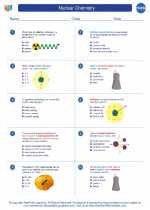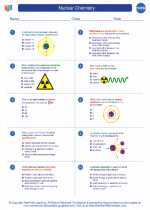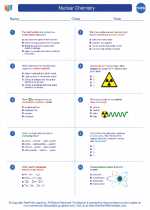Cause in Chemistry
When studying chemistry, understanding the cause of chemical reactions and changes is crucial. The cause of a chemical reaction or change is often related to the interactions between atoms and molecules. Here are some key concepts to consider:
Atomic Interactions
Chemical reactions are caused by interactions between atoms. Atoms can bond with each other through various types of chemical bonds, such as covalent bonds, ionic bonds, and metallic bonds. These interactions determine the behavior of substances in chemical reactions.
Molecular Interactions
In addition to atomic interactions, the interactions between molecules also play a significant role in causing chemical changes. For example, the attraction or repulsion between molecules can affect the physical state of a substance (solid, liquid, gas) and its reactivity in chemical reactions.
Energy Change
The cause of a chemical reaction can also be related to the energy changes that occur during the reaction. Exothermic reactions release energy, often in the form of heat, while endothermic reactions absorb energy from the surroundings. Understanding the energy changes in a reaction can provide insights into its cause.
Study Guide
Here are some key points to focus on when studying the cause of chemical reactions in chemistry:
- Understand the types of chemical bonds and how they influence reactivity.
- Explore the interactions between molecules and their impact on chemical properties.
- Learn to identify exothermic and endothermic reactions and their causes.
- Practice analyzing chemical reactions to determine the underlying causes of the observed changes.
By mastering the concept of cause in chemistry, you'll be better equipped to understand and predict the behavior of substances in various chemical processes.
.◂Chemistry Worksheets and Study Guides High School. Nuclear Chemistry

 Worksheet/Answer key
Worksheet/Answer key
 Worksheet/Answer key
Worksheet/Answer key
